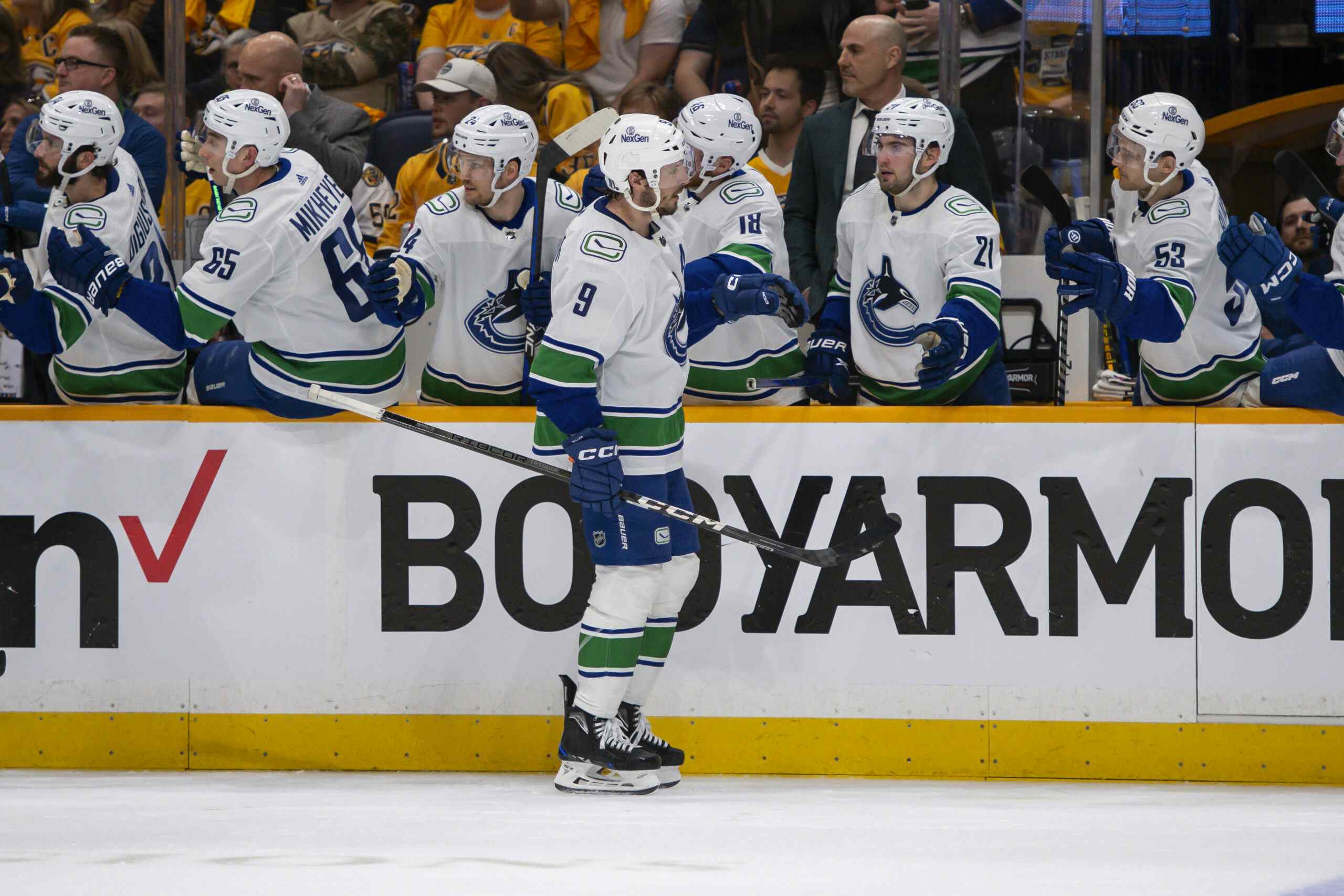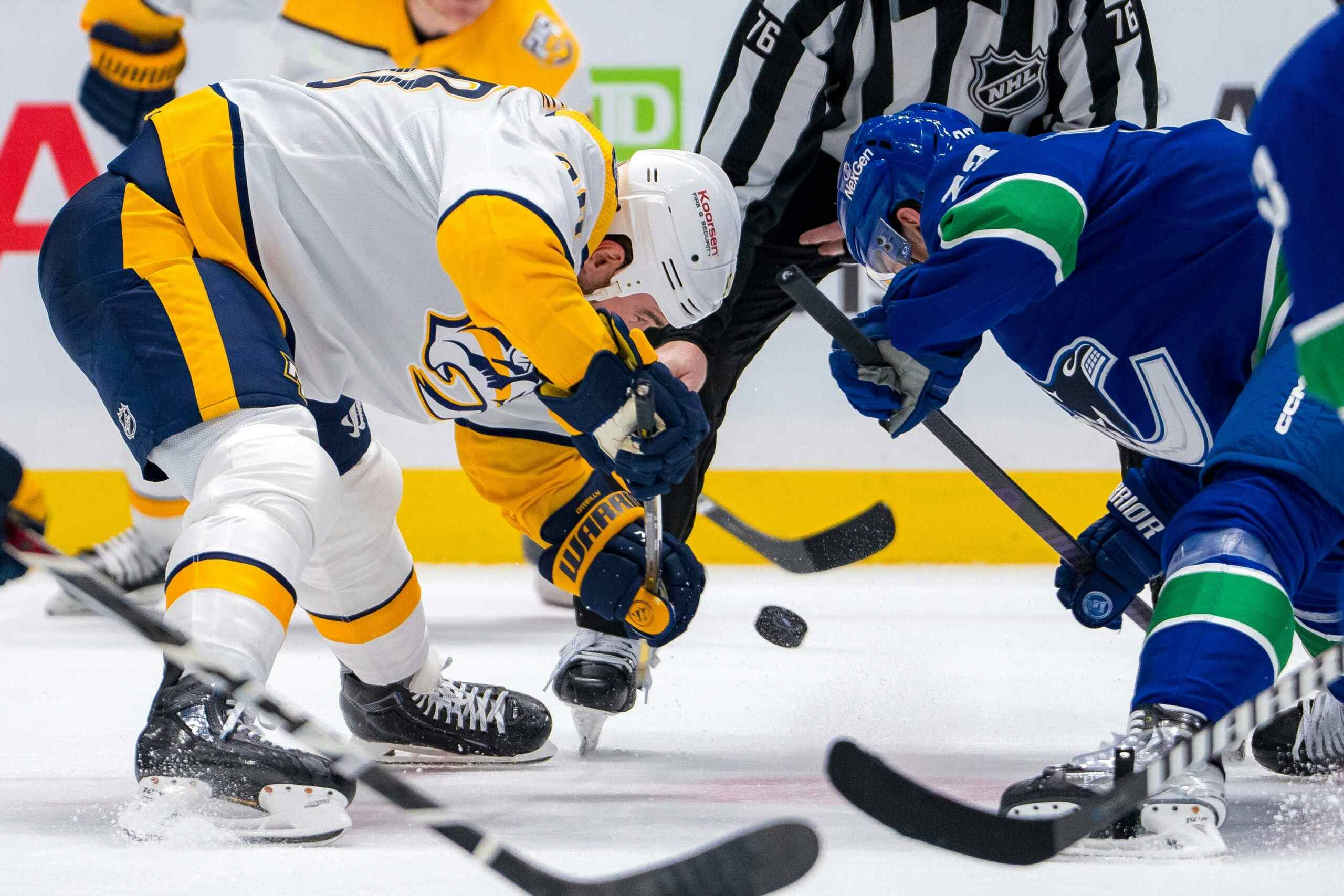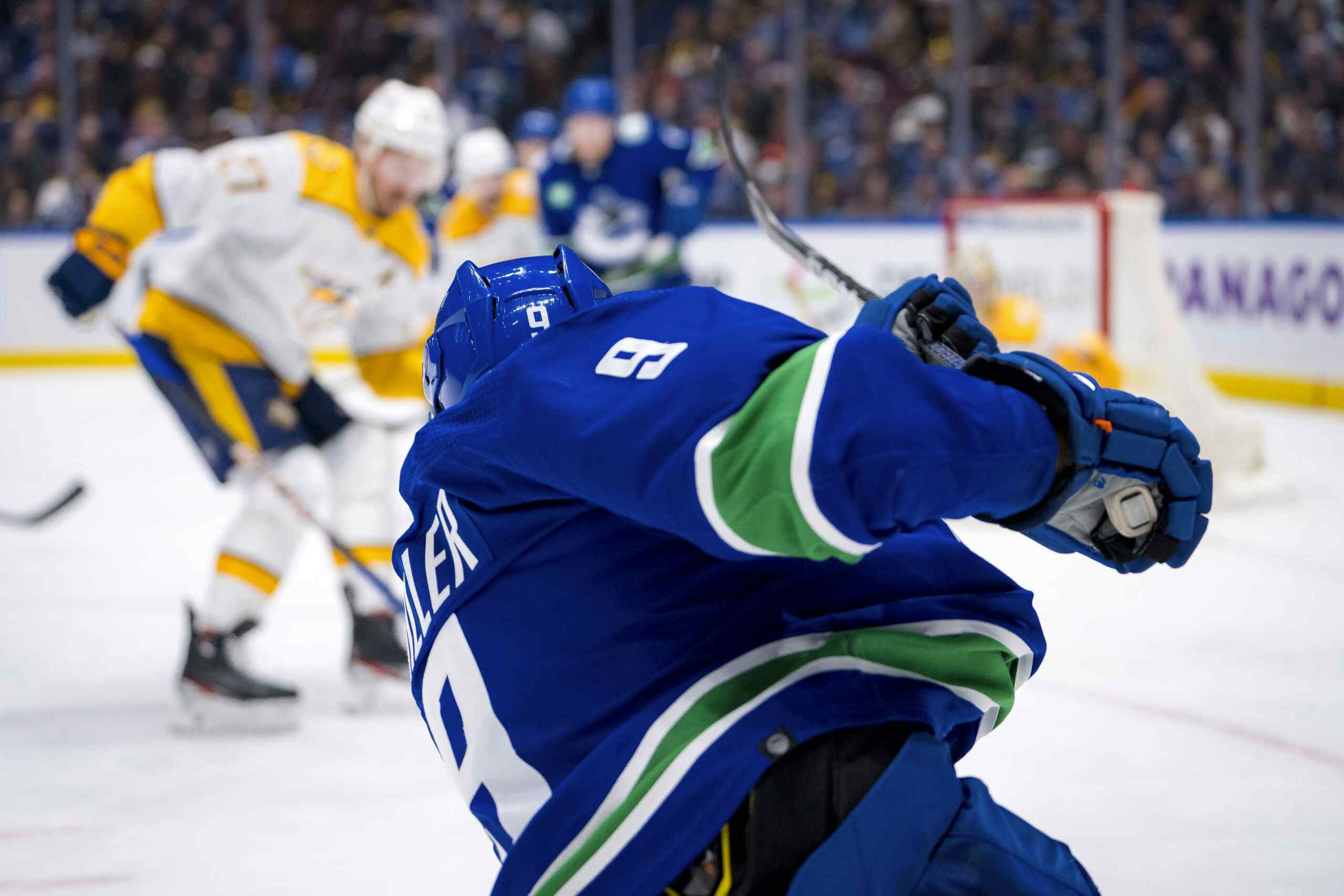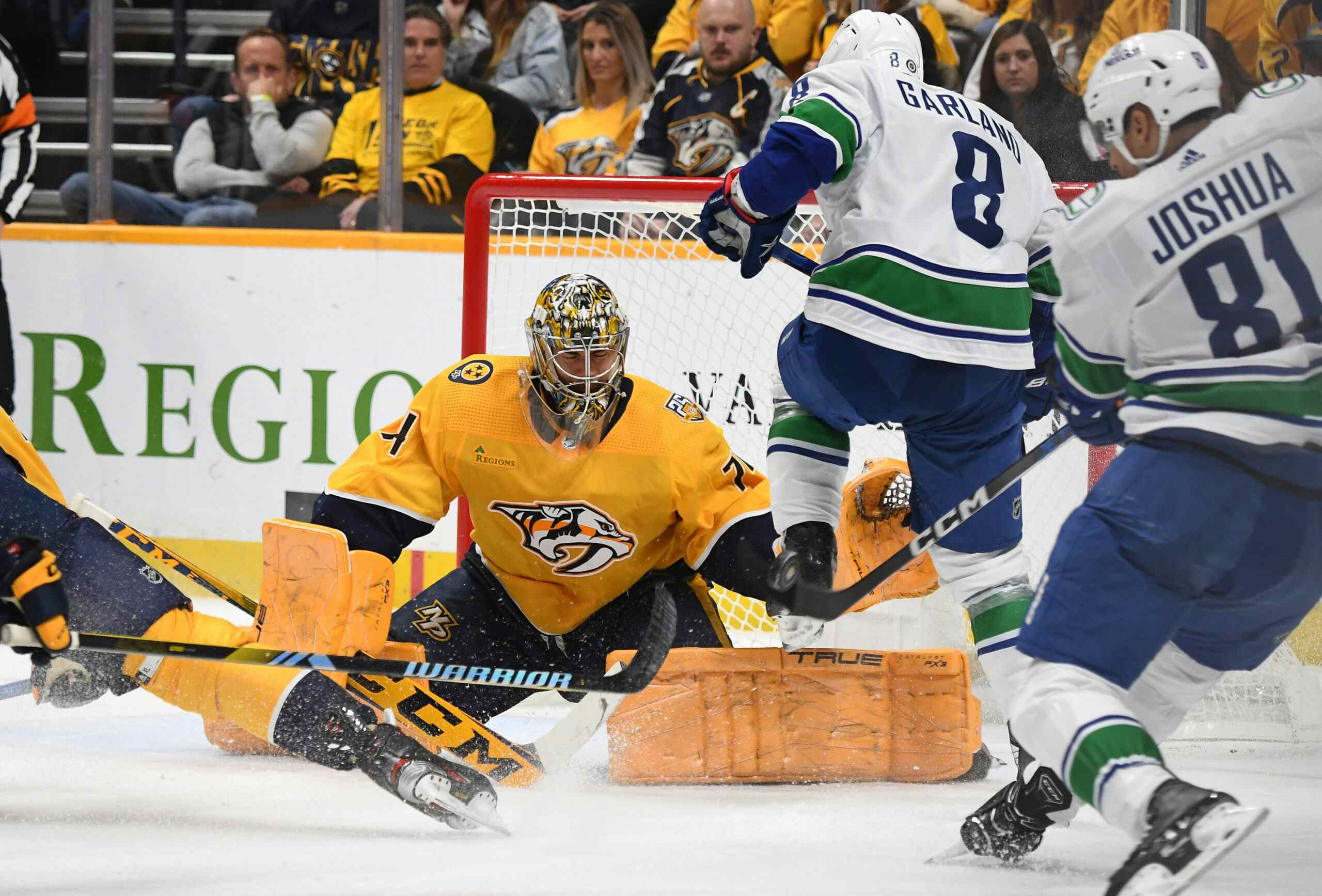On the Canucks Interest in Ryan Spooner
By J.D. Burke
7 years ago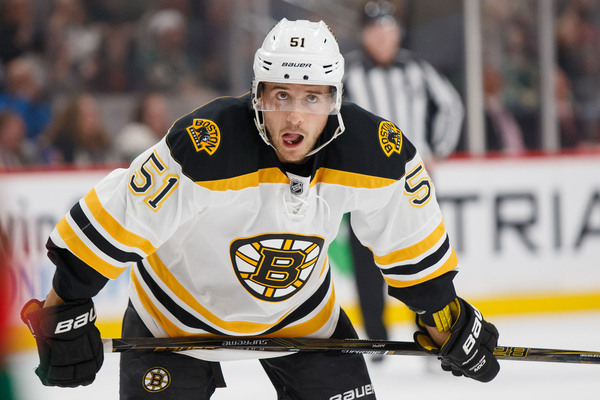
Photo Credit: Brad Rempel
When a Boston Bruin finds themselves on the trade block, you better believe they’re connected to the Vancouver Canucks not long after. Such was the case on Hockey Night in Canada’s Headlines segment with Ryan Spooner.
The Canucks, as an organization, value familiarity. Vancouver’s General Manager and Assistant Manager played a role in drafting and developing within the Bruins organization when they selected Spooner in the 2010 NHL Entry Draft and kept tabs on him for a few years thereafter.
That’s probably where the conversation starts, but far from where it end. If the Canucks are interested in landing Spooner, it can make sense for a number of hockey reasons. Let’s dig in.
The Player
This may come as a surprise, but Spooner is an imperfect player. He’s an excellent playmaking centre who sees the ice exceptionally well. I’d also suggest he’s a better finisher than his paltry even strength goal rate indicates. My primary concern with Spooner is that he’s historically been a net negative contributor to his club’s solvency at even strength.

I must say, though, that I’m skeptical of just how bad Spooner looks at first glance using underlying shot attempt metrics. The problem with using relative statistics in Spooner’s instance is that you’re juxtaposing Spooner’s linemates performance with Spooner, opposed to Patrice Bergeron and David Krejci.
| Line Role | Time on Ice | Partners | Corsi For% | Expected Goals For% | |
| Ryan Spooner at Centre | 231.2 | Jimmy Hayes | Matt Beleskey | 43.79% | 48.76% |
| Ryan Spooner at Right Wing | 202.34 | David Krejci | Milan Lucic | 56.82% | 50.51% |
| Ryan Spooner at Left Wing | 105.56 | David Krejci | David Backes | 53.46% | 52.39% |
Looking at this table, we can posit a number of things. Primarily, it asserts the notion Spooner can’t move the river singlehandedly, though he won’t be the anchor on a competent line looking for secondary scoring. I also tend to weigh the last of those three data sets heavier, given its recency — that’s the line he’s playing on this season. That’s a positive trend.

Whether Spooner can or can’t contribute positively to his club’s two-way health is a topic for debate, and I think we can at the very least surmise it’s not a strength of his. I don’t think that should get lost in the shuffle, but Spooner’s production is such that we shouldn’t discount the player entirely either.
Spooner’s produced 86 points in 160 NHL games — an average of about 44 points per 82 game season. In this, the second dead puck era, that’s production I’d feel comfortable with associating with a high-end second line player. And that’s looking at Spooner’s totals at its most base levels.
Since making the jump to the NHL in advance of the 2013-14 season, only 33 players with 1000 or more minutes at even strength have produced primary assists at a greater rate than Spooner’s .79 A1/60. Some of that’s percentages. The Bruins are a full two points clear of their expected PDO with Spooner on the ice.
As a team, the Bruins have been exceedingly lucky with Spooner on the ice at even strength. That might explain Spooner’s gaudy assist rate. By the same token, Spooner’s roughly 5% even strength Sh% suggest he’s been unlucky on a personal level. That or he’s just a poor finisher. The sample is such that we’re left wondering.
What Spooner provides as an even strength option down the middle is enticing, but it’s likely his power play prowess that drives the message home at Pat Quinn Way. If the Canucks want to address their second pair, there’s a wealth of evidence to suggest Spooner’s the guy to do it.
From 2013-17, a Bruins power play that’s featured Bergeron, Spooner and Loui Eriksson produces unblocked shot attempts at a rate of 100.5 per sixty minutes. There isn’t a single player with 100 or more 5v4 minutes that’s come within five of that mark in that span.
The Canucks could do a lot worse for a second unit power play anchor. Which says nothing of the fact that a Henrik Sedin, Bo Horvat and Spooner centre set is a trio that might genuinely strike fear into their opponent’s minds and force uncomfortable matchups.
The Cost and Complications
The Bruins are in a conundrum here. One where they just can’t secure anywhere near appropriate value for Spooner. He’s a player that traditional minds are going to see as having one solid season offensively and a history of defensive deficiencies that go as far back as his draft year.
I also wonder if the rest of the league sees Spooner as a centre or a winger. You can’t overcharge for centres to anywhere near the extent defenceman are ransomed, but it’s a premium position all the same.
That obviously plays into the Canucks hands if their interest is sincere. What doesn’t is the expansion draft. That makes this a difficult trade to pull off.
The Bruins legitimately don’t have three defenceman worth protecting, which speaks to their obvious need on the blue line. If the Canucks start this conversation with a resurgent Luca Sbisa or even Erik Gudbranson, that’s fine, but they’ll probably need an expansion eligible defenceman in return.
If that’s Kevan Miller or Adam McQuaid (and I wouldn’t discount the possibility those are players Benning covets, for whatever reason), they’re picking up some bad players with worst contracts that’ll hang from their necks for, at least, the last two seasons. Though contrary that, it could save the Canucks from handing one such albatross extension to Gudbranson, but I digress.
Then one has to wonder what the Canucks will do with their banquet of expansion eligible forwards. They’ve four forwards they can protect and have to decide between Jannik Hansen, Anton Rodin, Markus Granlund, Sven Baertschi and Brandon Sutter.
Vancouver almost has to part with two forwards to bring in one. That doesn’t necessarily mean throwing all their depth at Bruins GM Don Sweeney’s desk and seeing what sticks, but it might mean moving a player further down the road. That’s probably not the worst imaginable fate, but I can’t imagine the Canucks are overly comfortable with the notion.
So What Should the Canucks do?
I love to speculate on roster composition. I’m perhaps a little less comfortable speculating on the exact price. Based on Sweeney’s record with the Bruins, I can see him falling over himself for a player like Gudbranson, and maybe even to a lesser extent Sbisa. Is that enough to get Spooner, though? Probably for the former of those two does it.
Whatever the case, it’s a tonne of trouble for the Canucks. They have most of the leverage, but not all of it. They’d be adding a player that, at the very least, can remain afloat on a second line. That’s huge. But it might cost them a younger player in the expansion draft, and then you have to question what kind of net progress they made in totality.
Spooner’s also entering restricted free agency. I’d think that’s a big reason why the Bruins are shopping him. Getting Spooner under contract shouldn’t bankrupt a franchise, but it’ll be costly. The Bruins blue line doesn’t look like it’ll get appreciably better from internal upgrades, so that means broaching free agency. They enter next off-season with about $11-million in cap space and have to re-sign David Pastrnak.
It’s a complicated question, and not one I’m entirely comfortable with answering confidently. If I’m the Canucks, though, I do my due dilligence and see where a player like Spooner might fit in the long-term structure of the organization and whether it’s worth the short-term cost in assets and the long-term cost financially.
Recent articles from J.D. Burke

